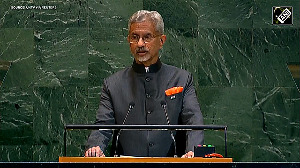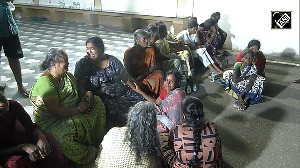His U.S. Postal team have been among the best in the discipline and all of them worked hard in the race prologue to ensure a good start position for Wednesday's test.
The leading teams have the advantage of starting last and knowing exactly what times they need to beat.
A controversial new regulation should, however, help teams built around climbers, who have traditionally suffered in a discipline better suited to sprinters.
In previous Tours, teams were awarded the actual time they clocked over the course. This year, teams will merely receive time penalties based on their placing, with the slowest team facing a maximum penalty of three minutes.
| |||||||||||
"The team time trial is a lot less important now than it was last year but it's still important," added Armstrong, who is chasing an unprecedented sixth Tour crown.
"The facts are one team will lose no time and another team will lose three minutes.
"If I lost three minutes today, ask me how important that would be. It would be really important."
The American has every chance of claiming back the yellow jersey he has held for 53 days since winning his first Tour in 1999.
"If the team wins, then I will definitely be in the yellow jersey," added Armstrong. "But it's not important to have the jersey after the team time trial.
"It's nice to have it; it's what you come to do, but if you have to wait until the Pyrenees or later, it's okay too.
"We wouldn't defend it, I don't think."
Known for his meticulous Tour preparation, Armstrong said his team had trained four times for the time trial and that he had checked the course after the Criterium International in April.
"It's a pretty simple course, actually," he said.







